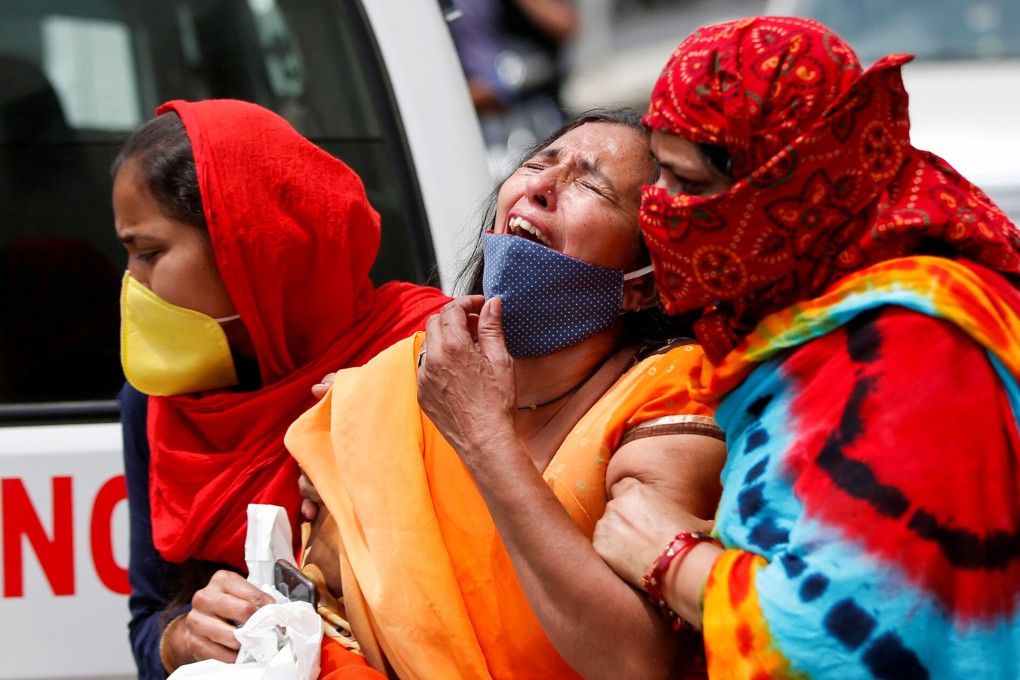Advertisement
As US and China offer coronavirus aid, India wary of hidden agendas
- As virus mutations send infections rocketing in India, offers of help have arrived from both Biden and Beijing
- But the US has soured sentiment by dragging its feet; sceptics say China sees its chance to drive a wedge between Washington and New Delhi
Reading Time:5 minutes
Why you can trust SCMP
69

As India continues to battle a raging Covid-19 outbreak, with US President Joe Biden pledging Washington’s help on Monday, New Delhi has remained silent on Beijing’s offer of assistance, while Indian companies have struck their own deals with Chinese firms to import oxygen tanks and personal protective equipment.
Indian analysts said New Delhi’s reticence reflected the prevailing public sentiment that Beijing was not sincerely concerned about India, but instead wanted to highlight Washington’s failure to send vaccine raw materials to India due to export curbs and stockpiled supplies of AstraZeneca vaccines.
Former foreign secretary Kanwal Sibal said China was “accentuating how [India] is down on its knees begging for help to control its pandemic”. India’s latest surge, thought to be fuelled in part by mutations in the virus, has seen record daily infection numbers resulting in overwhelmed hospitals, desperate calls for oxygen supplies on social media and mass cremations in makeshift facilities. The country now has more than 17 million cases, the second-highest caseload worldwide behind the United States.
Advertisement
“There’s always a hidden agenda behind Beijing’s outreach in such matters. China wants to signal to India that America [which initially refused help to India] is not a reliable partner and drive a wedge between Delhi and Washington who share a good relationship,” said Sibal, whose diplomatic career spanned nearly five decades including two as India’s top diplomat from 2001 to 2002.
Indeed, China’s Communist Party-backed Global Times newspaper has in the past days criticised the US for failing to provide aid to India, suggesting it is not a reliable partner for India, despite both countries forging closer ties in the past year in a bid to counter China’s influence in the Indo-Pacific.
Advertisement
Advertisement
Select Voice
Select Speed
1.00x